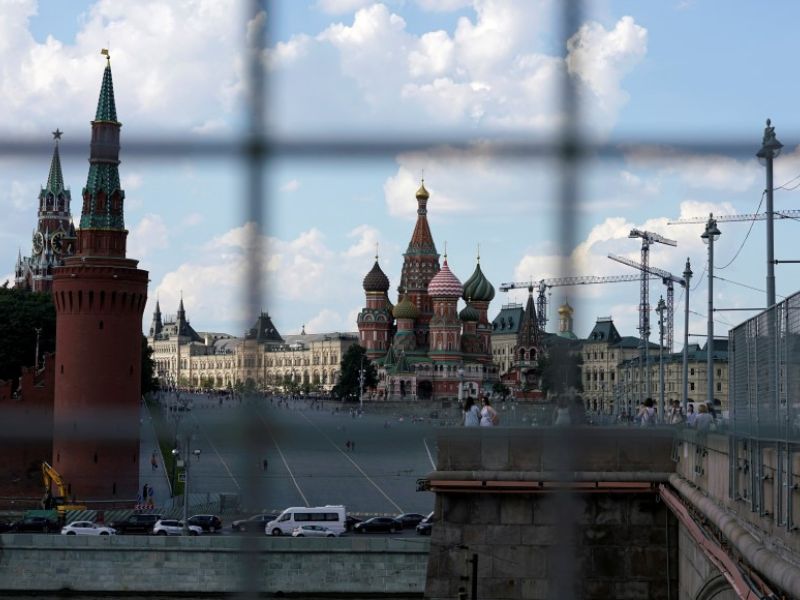For decades, Russian intelligence agencies have used what they call “active measures” to destabilize their rivals. Now they seem to be turning those tools on the U.S. political system, though in the process they appear to have violated Rule No. 1 of the spy business: Don’t get caught.
U.S. officials say they have strong evidence that Russian intelligence agencies hacked the files of the Democratic National Committee over the past year. What’s less certain is whether they deliberately leaked some of those files to WikiLeaks, with the aim of disrupting Hillary Clinton’s election campaign — though some experts think this “weaponization” of information was likely.
The scope of possible Russian political hacking broadened Friday with reports that computer systems of the Clinton campaign and the Democratic Congressional Campaign Committee had been breached.
“Anything’s possible,” President Obama told Savannah Guthrie of NBC’s “Today” show when asked Wednesday whether Russia might have deliberately tried to influence the U.S. election. “What we do know is that the Russians hack our systems,” he said, adding that “on a regular basis they try to influence elections in Europe.”
Russian President Vladimir Putin grew up in a KGB culture in which such use of active measures was a standard tool of the Cold War. He seems to have carried this tradecraft into the Kremlin — employing hacking, black propaganda and other covert tools as part of what’s politely described these days as “hybrid warfare.”
U.S. officials say that Russian intelligence in recent years has secretly funded right-wing political parties in Europe, sponsored covert propaganda channels, hacked the electrical grid of Ukraine and cyber-sabotaged other neighboring states, and created networks of “trolls” to attack enemies online.
Why does Putin use these active measures to destabilize his rivals? Because they work. They’re invisible and deniable and, for the most part, the targets don’t fight back.
But the DNC hack may have been a bridge too far. It triggered blunt responses in recent days from top national security officials who were gathered here for an annual conference known as the Aspen Security Forum.
When the United States discovers evidence of foreign hacking, it should “be public about it,” urged John Carlin, the assistant attorney general for national security. “Take it out of the intelligence channel… that’s the only way to change behavior,” he said. James Clapper, the director of national intelligence, said that he wasn’t yet ready to identify the
perpetrator of the DNC hack but that from an intelligence standpoint, the United States is already “at war” with Russia.
“The Russians have had for years a doctrine of … active measures,” said Elissa Slotkin, acting assistant secretary of defense for international security affairs. She said that the Kremlin’s tactics attempt “to sow dissent generally, either on a specific issue or just to cause political chaos … in order to create an opening for themselves.”
What worries U.S. officials most is that given Russia’s demonstrated willingness to use covert action against its adversaries, it might secretly intervene just before the November election. That might mean releasing embarrassing Clinton emails, as GOP nominee Donald Trump has urged Moscow to do. It might mean leaking phony news stories, or finding ways to upset financial markets. The American political system is an open and vulnerable target.
Why would Russia target the DNC, in an operation that’s eerily similar to the Nixon White House’s 1972 burglary at the committee’s headquarters at the Watergate? Partly, it was an information-gathering operation, like the reported Chinese intelligence hacks of the campaigns of Barack Obama and John McCain in 2008.
But Moscow may have had a special animus toward Clinton. When she was secretary of state, she endorsed Russian dissenters in the 2011 and 2012 elections. A furious Putin charged back then that she “gave them a signal” and that the dissidents, “with the support of the U.S. State Department, began active work.” In other words, Putin thinks Clinton shot first.
The DNC noticed a problem in its computer system in April and hired a forensics firm called CrowdStrike to analyze the evidence. The firm concluded that two Internet addresses linked to Russian intelligence had been inside the DNC systems.
How did the DNC information get to WikiLeaks? A supposed Romanian hacker who calls himself Guccifer 2.0 claimed credit. But some experts believe this is what’s known in intelligence parlance as a “false flag” aimed at masking the Russian hand.
And what about Trump? Some have argued that he was the intended beneficiary of Moscow’s DNC hack. But it seems more likely that Trump is what Russian intelligence officers sometimes describe as a “useful idiot” — a person who unintentionally fosters Moscow’s campaign of instability.
(The Washington Post)
